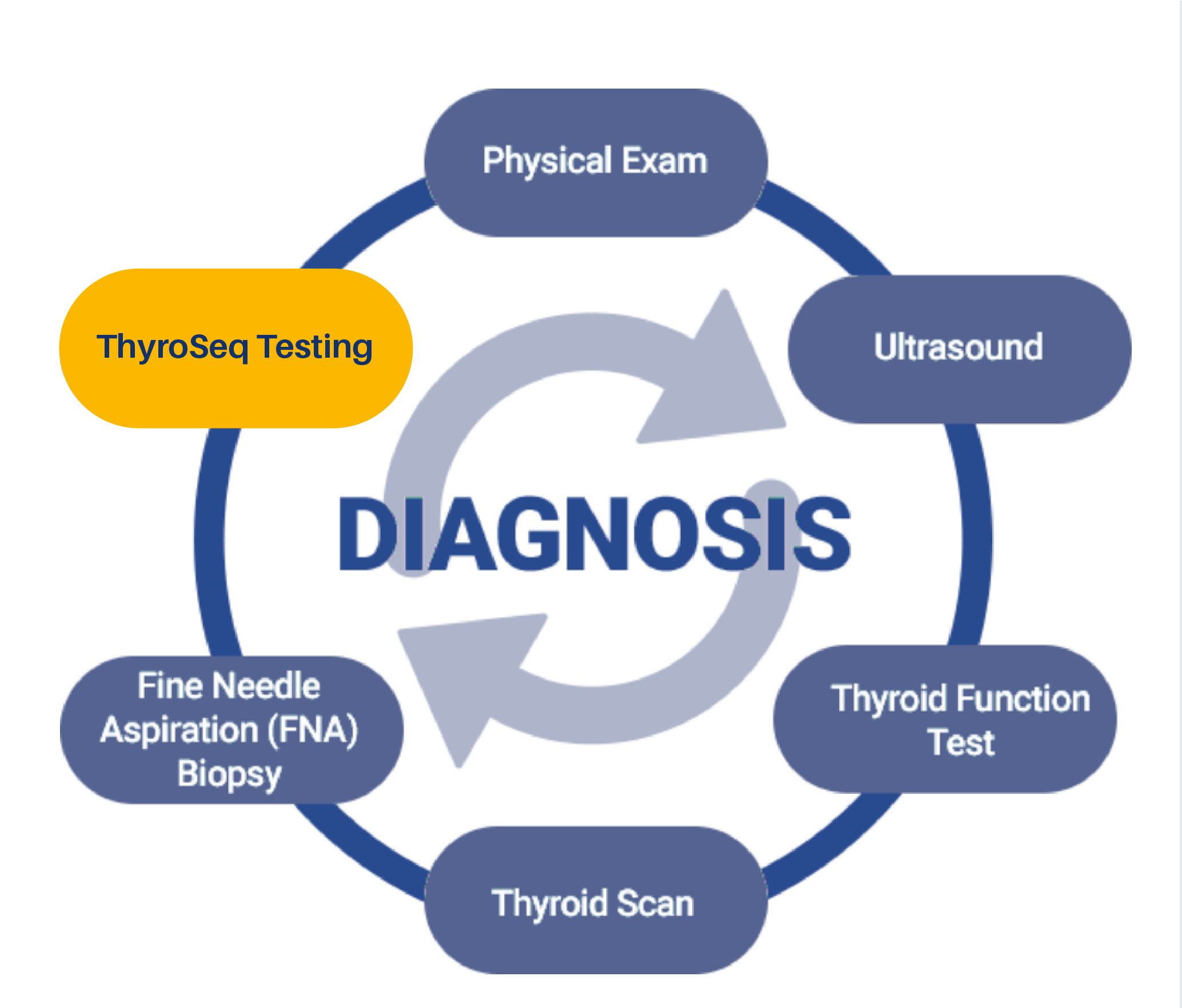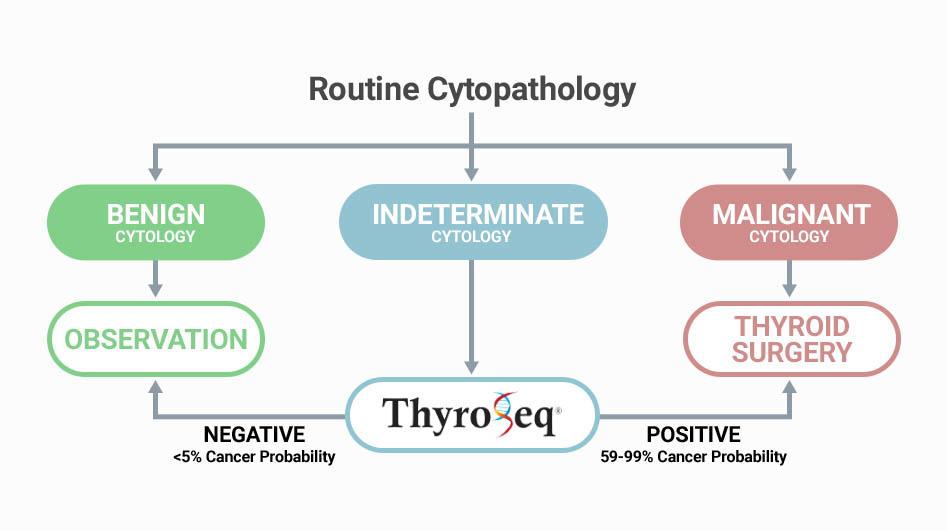
Diagnosis
How will my nodule be examined?
Your doctor will need to determine what type of thyroid nodule you have, which will direct the most appropriate course of treatment. There are many tests your doctor may choose to perform in order to diagnose what type of nodule you have and to rule out cancer.
What is a thyroid nodule FNA biopsy?
For those nodules that are large or have suspicious ultrasound features a Fine Needle Aspiration (FNA) biopsy is frequently performed to collect cells for diagnostic cytology. FNA biopsy is a procedure performed by your doctor by inserting a very small needle into your thyroid using ultrasound guidance to collect a small sample of cells from your thyroid nodule.
What happens after my FNA biopsy?
The FNA biopsy is sent to a doctor called a cytopathologist, who is specially trained to diagnose disease by examining your body’s cells under a microscope. After careful examination of your FNA biopsy material, the cytopathologist will provide a definitive diagnosis of benign or malignant disease in most cases. However, in approximately 20-30% of nodules, the cytopathologist cannot reliably exclude cancer and such cases are placed in one of the following indeterminate cytology categories:
- Atypia of undetermined significance/follicular lesion of undetermined significance (AUS/FLUS) (Bethesda III)
- Follicular or Hürthle cell neoplasm/suspicious for follicular or Hürthle cell neoplasm (FN/SFN) (Bethesda IV)
- Suspicious for malignant cells (SMC) (Bethesda V)

If thyroid nodules are found to be benign, no further treatment is typically required. For nodules found to be malignant on FNA cytology, surgical treatment is typically recommended. However, in those nodules where cytology is indeterminate, clinical management is not clear and most of these patients are offered diagnostic surgery to remove part of their thyroid to establish a correct diagnosis. In most cases (50-85% depending on indeterminate cytology category) these nodules are found benign after surgery. These surgeries would have been avoided if the diagnosis of benign nodules was established from the FNA biopsy using the ThyroSeq test. Find out how ThyroSeq can help clarify all types of indeterminate cytology, provide an accurate diagnosis, and help avoid worry and unnecessary surgery!
